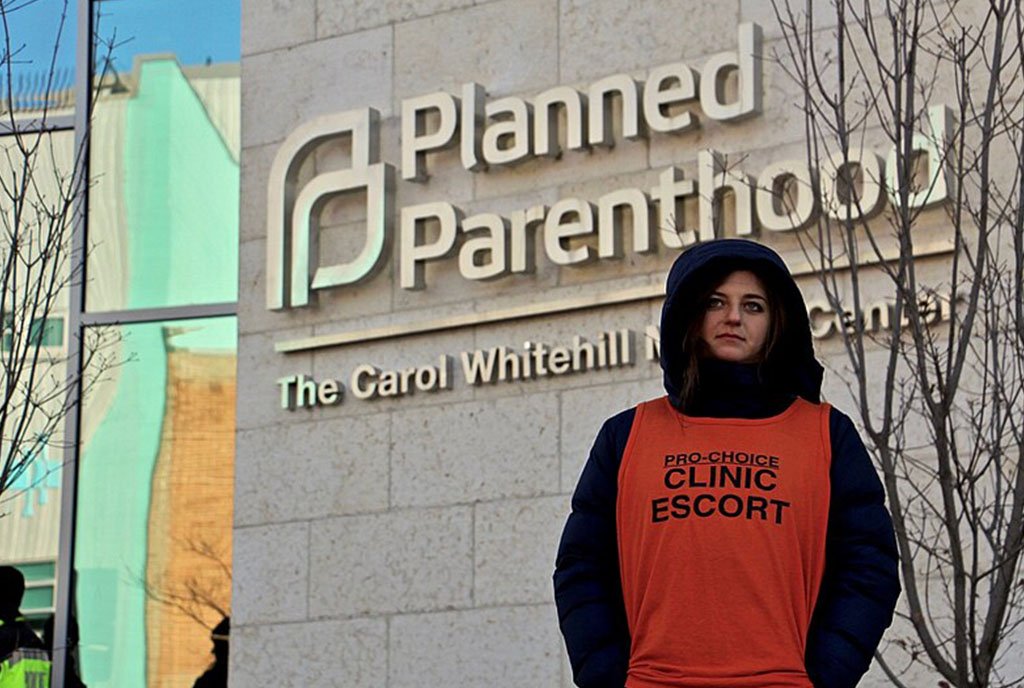At the heart of this is a big and continuing issue: What kinds of organizations deserve tax exempt status? And what are their obligations to the public as tax exempt entities? The NFL’s position, that it wants exempt status but desires to escape the transparency and disclosure rules that apply to all other nonprofits, epitomizes the burgeoning issue in this nation of exactly what tax exempt nonprofit status means.
The New York Times reported earlier this month that the NFL is willing to reveal the salary of Commissioner Roger Goodell—in the realm of $10 million a year—as it has done for several years, but not the names and salaries of other key staff of the football monopoly. The NFL’s fear is that the new 990 will require even entities like 501(c)(6) trade associations—that’s what the NFL is—to disclose that kind of information as tax exempt entities, even though donations to (c)(6) organizations, unlike 501(c)(3)s, are not tax deductible as charitable gifts.
According to the NFL, some 25 staff people would be listed as making more than $125,000 salaries. The NFL is concerned that publishing the names and salaries of these employees would violate their personal privacy rights. Just to be helpful, the NFL has approached the American Society of Association Executives (ASAE)—basically the trade association of trade associations—to get a bill introduced that would exempt the NFL and all other 501(c)(6) trade associations from this heinous requirement.
Someone might want to help the NFL with messaging, given this explanation by the NFL’s vice president for communications and public affairs: “I’ve been here 40 years. I finally get to the point where I’m making 150 grand, and they want to put my name and address on the form so the lawyer next door who makes a million dollars can laugh at me…A hundred and fifty thousand here is not the same as it is in Dubuque, Iowa or West Texas.” That’s a very touching sentiment (the VP in question is referring to New York City in contrast to Dubuque).
What’s wrong with the anti-transparency position of the NFL suits? A few obvious points come to mind:
Big Nonprofit Money: The NFL is a tax exempt organization with annual revenues of $6.9 billion. The American public has a right to know what kind of compensation the executives of nearly $7 billion in sales earn under the protection of the tax exemption afforded them by the Internal Revenue Service.
Nonprofit by Choice: If the NFL, representing America’s most popular and lucrative sport, were truly opposed to revealing this information, rather than trying to insulate itself and other tax exempt (c)(6) trade associations from disclosure, it could simply do what Major League Baseball did and convert to for-profit status. Most of the public would be shocked to learn that the NFL money-making machine is tax exempt.
Lots of Highly Paid Suits: If the top guy in this tax exempt entity pulls down $10 million or so in salary, and who knows what perks the NFL covers in addition, one might suspect that the 25 or so other highly paid executives aren’t hovering at $150,000. Many probably make very hefty salaries themselves. Of course, one might suspect that a nonprofit whose exec makes $10 million is a little light in its “nonprofitness”.
Goodell’s predecessor, Paul Tagliabue, apparently took home $10.3 million or so annually before he retired in 2006, but the 990 for the NFL indicated a salary of $6.61 million and benefits of an additional $1.2 million. Total salaries, benefits, and payroll taxes for the NFL that year topped $43 million, containing plenty of room for a bunch of other solid paychecks from a tax exempt entity worthy of reporting to the exemption-granting American public.
Sign up for our free newsletters
Subscribe to NPQ's newsletters to have our top stories delivered directly to your inbox.
By signing up, you agree to our privacy policy and terms of use, and to receive messages from NPQ and our partners.
Tax Exempt Monopoly: The NFL might want to remember that it has the unusual distinction of not only being a tax exempt multi-billion dollar corporation, it is a tax exempt monopoly. Ask any city that has had to pony up public subsidies for stadiums in order to prevent the NFL from using its monopoly powers to move teams from one city to another. Congress gave the NFL and the other leagues protections against market forces, but the leagues have deployed these protections as monopolistic bargaining chips against the American taxpayer. Little did taxpayers know that in negotiating with the NFL monopoly, unlike the MLB monopoly, the NFL was also tax exempt—and even able to issue tax exempt bonds as a nonprofit to boot!
Blurred Nonprofit/For-Profit Lines: Nonprofits as complicated as the National Football League require more disclosure, not less, particularly when they are so much more like for-profit business juggernauts operating behind the nonprofit cloak. As NFL Commissioner, Goodell not only runs the National Football League, but other exempt entities such as the Professional Football Players Insurance Trust, the NFL Youth Football Fund, the NFL Non-Player Insurance Trust, the NFL Management Council, the NFL Disaster Relief Fund, NFL Charities, and the NFL Alumni Dire Need Charitable Fund, and non-exempt entities such as NFL Ventures LP, NFL Ventures Inc., NFL Properties LLC, NFL Productions LLC, NFL International LLC, and NFL Enterprises LLC. This complex array of nonprofit and for-profit and limited profit entities is the emerging crisis area for IRS oversight of the sector.
According to the IRS’s Steve Miller in Congressional testimony in 2007, “As the tax-exempt sector grows larger, wealthier, and structurally more complex, the line between charities and the commercial sector blurs as businesses try to act like charities in order to reap the benefits of tax exemption and as charities engage in business-like activities in order to raise funds for their activities. As charities themselves begin to engage in complex deals, they run the risk of violating the limitations that apply to them.” There’s no way to let the NFL, the epitome of this sectoral blurring, to escape the necessity of basic disclosure.
The NFL’s Business-Related Charitable Grantmaking: A lot of the NFL’s high-profile charitable endeavors, directed by the commissioner, look a lot like grants that serve the business and public relations needs of the League first and foremost.
The NFL itself made $436,254 in grants according to its 2005 990, the largest being $275,000 to the NFL Alumni Association. Most of the remaining grant funding was to various charities as matching grants for employee donations. For NFL Charities, the cash grantmaking was $6,458,549 in 2005. Of that totally, $1,491,000 went for sports medicine research, such as $45,000 to Wayne State to look at mouthguards, $125,000 to Michigan State on high ankle sprains, and $125,000 to the Cleveland Clinic Foundation on ACL injury risks for NFL athletes. NFL Charities also makes an annual payment to the NFL Players Association’s Player Assistance Trust, an obligation incurred due to negotiations with the union, not necessarily because of the NFL’s charitable instincts. $2.8 million supported the “creation of and ongoing programming for NFL Youth Education Town youth centers” and “Impact Grants to support youth career education and funding of NFL-run volunteer programs.”
Whether or not some of these charitable grants look more like business expenditures and public relations promotion than the NFL’s giving from the heart, they didn’t add up in 2005 to three-fourths of league commissioner Paul Tagliabue’s reported salary. On the NFL Charities 990, no compensated staff were listed; both then commissioner Tagliabue and his deputy Goodell were listed as current officers and directors, but devoting an overage of zero hours per week to the position. Other current NFL execs were also in the governing body, so full disclosure of their salaries which clearly greatly exceed the NFL’s ostensibly charitable giving is warranted.
Lobbying for Change: In arguing for a 501(c)(6) exemption from Form 990 transparency, the NFL can turn to its legions of in-house and out of house lobbyists currying favor with Congress. According to the OpenSecrets.org database of the Center for Responsive Politics, the NFL is able to use its nonprofit trade association status to pay for some big-time lobbying. In 2007, the NFL spent $1,125,000 in federal lobbying, up from $380,000 the previous year. For 2008, covering one or perhaps two quarters (second quarter federal lobbying reports were due for filing on July 21), the NFL has already spent $450,000 winning friends on Capitol Hill.
The NFL is likely to run into a roadblock in the form of the intrepid and redoubtable Senator Charles Grassley (R-Iowa). Although now demoted to minority leader of the Senate Finance Committee (led by Democrat Max Baucus of Montana), it was of course Grassley who spoke up in response to the NFL, telling the New York Times, “If, as requested, professional associations like the N.F.L. are allowed to keep salary information from the public, other tax-exempt groups would ask for the same treatment. This would be contrary to the goal of increasing transparency and accountability from tax-exempt organizations to the public.”
For all the money the NFL is spending on Capitol Hill lobbyists, one might want to tell the NFL communications and PR VP who complained about his laughable salary that to insult Dubuque is not a smart lobbying strategy. It may not be all that evident to the NFL suits working at 280 Park Avenue in Manhattan, perhaps because lacking an NFL franchise Dubuque may be impossible for them to locate on a map, but Dubuque is a city of 57,000 people in the state of Iowa. At the Senate Finance Committee, that NFL sharpie might be surprised to learn that Charles Grassley is also from Iowa.











